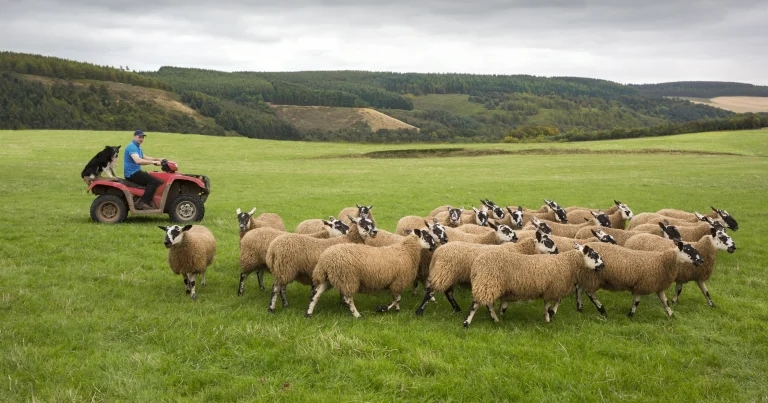4 Sept 2025
Administering late in the summer is said to have the potential to reap the biggest benefits and maximise the chance of eradicating all resistant worms.

Zoetis says the drench will reduce worm burdens, support lambs and extend the lifespan of older worming groups by slowing the development of resistance.
Vets have been urged to recommend their sheep farming clients administer a “knockout drench” to their flocks during the final part of the summer.
Pharmaceutical group Zoetis said a drench administered during the mid-to-late grazing season can eradicate worms that have survived routine treatment and slow resistance to anthelmintic medicines.
Zoetis’ Parasite Watch surveillance network of 26 farms around the UK found that average worm egg counts “drastically increased” in July, with some farms reporting strongyle worm counts of more than 750 eggs per gram in lamb faecal egg counts.
The increase is said to coincide with warm, humid weather that can accelerate the lifecycle of worm eggs and larvae in pastures.
Zoetis said a “knockout drench” containing either group four or five wormers will reduce worm burdens, support lambs finishing and extend the lifespan of older worming groups by slowing the development of resistance.
The group’s national veterinary manager, Patricia van Veen, said it is “crucial that farmers remain vigilant and closely monitor lambs for growth and cleanliness to quickly respond to parasite control”.
She continued: “Faecal egg counts (FECs) are an important tool for managing worms in sheep and enable farmers to make more informed decisions to tailor strategic treatments based on the parasite risk.
“In the coming period, a knockout drench, such as Startect [dual active sheep drench], is recommended to help manage wormer resistance and prolong the efficacy of all other wormer groups.”
The Sustainable Control of Parasites in Sheep recommends administering a knockout drench, also known as a late season break dose, to all remaining lambs toward the end of the summer when there is a greater build-up of worms.
It is said this will have the biggest potential benefits and maximise chances of eliminating all resistant worms.